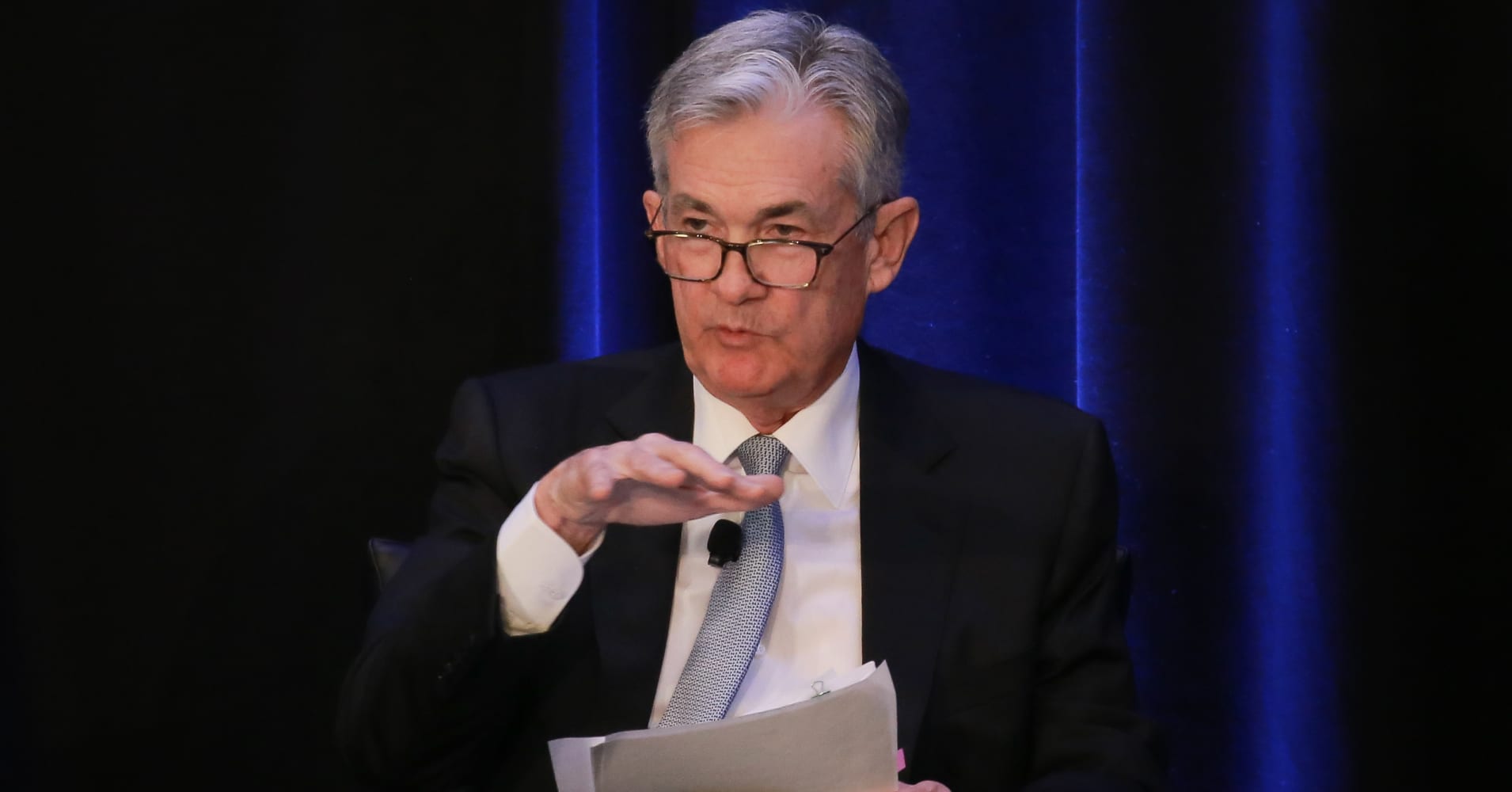Fed Chairman Jerome Powell changed his tone on Fed policy, walking back a comment he made in December that rattled markets and made him sound rigid about the Fed’s balance sheet.
Following the Fed’s December meeting, Powell had said that the Fed’s balance sheet wind-down was on “autopilot.”
That unnerved some investors who had been concerned about financial market turbulence and expected Powell to say the Fed would be flexible with all of its tools. At the same meeting, the Fed had raised interest rates by a quarter point and reduced its interest rate forecast for 2019 to two hikes from three.
Powell gave context to the comment Friday, saying the Fed had intended the interest rate policy to be its active tool while it could allow the balance sheet wind-down to run in the background. “Some years ago, we decided that rate policy was going to be the active policy tool and the balance sheet would be allowed to shrink gradually and predictably in the background,” he said.
Speaking at the American Economics Association annual meeting Friday, Powell said the Fed is able to “adjust policy quickly and flexibly” if it sees problems.
“We wouldn’t hesitate to change it and that would include the balance sheet. We’re hearing a lot from different groups of people about the role the balance sheet normalization may be playing in the market,” he said. Powell explained that the Treasury issues more securities when the Fed’s balance sheet holdings mature. “We don’t believe our issuance is an important part of the story in the market turbulence that began in the fourth quarter of last year.”
“If we came to the view that the balance sheet normalization or any other aspect of the normalization was part of the problem, we wouldn’t hesitate to make a change,” he said. Powell was speaking on a panel with former Fed chairs Ben Bernanke and Janet Yellen.
The Dow, already higher on positive trade news and a strong jobs report, moved sharply higher as Powell spoke. Treasury yields, also higher on the surprisingly strong December jobs report, moved higher in tandem with stocks. The 2-year yield, the most sensitive to Fed policy, rose to 2.47 percent.
“That’s clearly moving the market. we know he’s flexible on rates, saying he’s flexible with the balance sheet is different than saying he’s on ‘auto pilot’…he’s basically pulling back the comment on ‘autopilot’ and that’s what the market is saying right now,” said Peter Boockvar, chief investment officer at Bleakley Advisory Group.
Powell also said the Fed had no pre-set path for policy and could be patient when it comes to interest rate hikes, also seen as a dovish comment.
“We’re seeing signs [the Fed] gets it. It was the absolute mirror image of the press conference last month,” said one market pro.
The dollar moved lower, as the market viewed Powell’s comments as more dovish. Powell also discussed inflation as being muted, also a dovish comment, suggesting the Fed will not be in a hurry to raise interest rates.
“He clearly made an effort not to spook the market. He also mentioned flexibility in terms of the balance sheet, which the equity market likes,” said Ian Lyngen, head of U.S. rates strategy at BMO.

